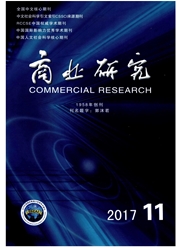

 中文摘要:
中文摘要:
在城镇化加速发展、农村劳动力持续外流的背景下,粮食安全成为关乎国计民生的战略性问题。本文将全国主要的11个粮食主产区分为经济较发达主产区和经济欠发达主产区,采用扩展的柯布-道格拉斯生产函数实证分析农村劳动力外流对粮食生产的影响及其区域差异。研究发现:在全国粮食经济较发达主产区,农村劳动力外流对粮食生产没有显著的影响;在经济欠发达主产区,该效应显著为负。因此,考虑粮食主产区的经济发展水平差异,制定差异化的劳动力流动和粮食安全政策,例如在欠发达主产区更关注耕地的使用效率和农业技术推广,在较发达主产区更关注土地适度规模经营,将有利于从粮食供给安全视角实现中国的粮食安全。
 英文摘要:
英文摘要:
The problem of food security has become a strategic issue related to the benefit of the people's livelihood in the background of accelerated urbanization and sustained outflow of rural labor force. The 11 main grain producing areas are divided into two classes: economic developed producing areas and underdeveloped producing areas. Then the paper empirically analyzes the influence of outflow of rural labor force on the grain production and regional differences using ex- tended Cobb - Douglas production function. The study finds that: outflow of rural labor force has no significant effect on the main grain producing areas and developed grain areas; it has significant negative effect in the underdeveloped produ- cing areas. Therefore, considering the difference of economic development level, we should make different flow and food safety policies in main grain producing areas. For example, in underdeveloped main producing areas, government should focus more on efficiency of land use and promotion of agricultural technology and pay attention to the appropriate scale operation of land in developed main producing areas. The suggestion will be conducive to realize China's food security from the perspective of food supply safety.
 同期刊论文项目
同期刊论文项目
 同项目期刊论文
同项目期刊论文
 期刊信息
期刊信息
